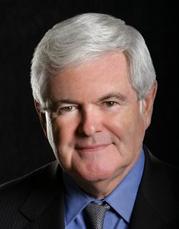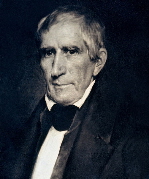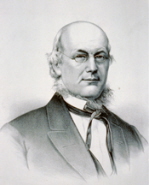Gingrich’s Long Hiatus from Political Office Would Make Presidential History
“President Gingrich” would own the largest gap on record between his last day serving in political office and Inauguration Day

If Gingrich does secure the GOP nomination, and if he would then defeat Barack Obama next November, he would go down in the record books for a very little known stat – and perhaps prove the adage that time heals all (political) wounds in the process.
A Smart Politics review of presidential election history finds that if Newt Gingrich were to win the White House in 2012, his 13+ year hiatus from political office at the time of his inauguration would be the largest among all U.S. Presidents who previously held political office.
The time between Gingrich’s departure from the U.S. House on January 3, 1999 and his hypothetical inauguration as president on January 20, 2012 would be 13 years and 17 days.
That would be over a year longer than the current longest break from political service by a victorious presidential candidate – a mark currently held by Abraham Lincoln in the Election of 1860.
Lincoln’s last day as U.S. Representative from Illinois’ 7th Congressional District was March 3, 1849 – some 12 years and 1 day before he was inaugurated as the 16th President of the United States on March 4, 1861.
Of course, the long break from political office for Gingrich may have been shrewd and necessary. Across the 22 Gallup polls conducted while the former Georgia Congressman was Speaker of the House, Gingrich had an average favorability rating of 30.1 percent.
But while there is ample precedent for the American electorate voting a nominee into the White House who is not currently holding a political post, it is very rare for a candidate to get elected president who has been out of office for more than a decade like Gingrich.

After Lincoln, Harrison had the next longest hiatus at 11 years, 5 months, and 6 days, between the end of his Ambassadorship to Columbia in 1829 and his presidential inauguration in March 1841.
Pierce – who spent his intervening years practicing law and fighting in the Mexican-American War – recorded 11 years and 4 days between his last day as U.S. Senator from New Hampshire in 1842 and becoming president in March 1853.
The lion’s share of successful presidential candidacies in the 20th and 21st Centuries have been launched by those currently serving in political office (or incumbents who, by definition, are in office). The exceptions are:
· William Taft, who had a gap of 8 months and 4 days after his tenure as Secretary of War and his presidential inauguration in 1909.
· Herbert Hoover, who left his long-held position as Secretary of Commerce to become the Republican nominee some 6 months and 11 days before his inauguration in 1929.
· Richard Nixon, who notched the fourth longest hiatus among the presidents at exactly eight years between the last day of his Vice-Presidency in 1961 and the first day of his presidency in 1969.
· Jimmy Carter, who had a scarce 1 year and 6 days out of office between serving as Governor of Georgia and president.
· Ronald Reagan, whose final term as Governor of California ended 6 years and 14 days before his inauguration in 1980.
Twice as many candidates were elected president while out of office in the late 18th and 19th Centuries including George Washington (1789), Andrew Jackson (1828), William H. Harrison (1840), James Polk (1844), Franklin Pierce (1852), James Buchanan (1856), Abraham Lincoln (1860), Benjamin Harrison (1888), Grover Cleveland (1892), and William McKinley (1896).
Greatest Gap Between Last Day of Service in Political Office and Presidential Inauguration*
|
Year
|
President
|
Last political office
|
Years
|
Months
|
Days
|
|
1860
|
Abraham Lincoln
|
US House (IL-07)
|
12
|
0
|
1
|
|
1840
|
William H. Harrison
|
Ambassador to Columbia
|
11
|
5
|
6
|
|
1852
|
Franklin Pierce
|
US Senator (NH)
|
11
|
0
|
4
|
|
1968
|
Richard Nixon
|
Vice President
|
8
|
0
|
0
|
|
1980
|
Ronald Reagan
|
Governor (CA)
|
6
|
0
|
14
|
|
1892
|
Grover Cleveland
|
President
|
4
|
0
|
0
|
|
1828
|
Andrew Jackson
|
US Senator (TN)
|
3
|
4
|
18
|
|
1844
|
James Polk
|
Governor (TN)
|
3
|
4
|
17
|
|
1888
|
Benjamin Harrison
|
US Senator (IN)
|
2
|
0
|
0
|
|
1789
|
George Washington
|
Constitutional Convention President
|
1
|
7
|
13
|
|
1896
|
William McKinley
|
Governor (OH)
|
1
|
1
|
19
|
|
1976
|
Jimmy Carter
|
Governor (GA)
|
1
|
0
|
6
|
|
1856
|
James Buchanan
|
Ambassador to UK
|
0
|
11
|
17
|
|
1908
|
William Taft
|
Secretary of War
|
0
|
8
|
4
|
|
1928
|
Herbert Hoover
|
Secretary of Commerce
|
0
|
6
|
11
|
* Excludes victorious major party nominees who never held political office: Zachary Taylor (1848), Ulysses Grant (1868), and Dwight Eisenhower (1952). Data compiled by Smart Politics.
But Gingrich would be in rare company by just winning the Republican nomination, even if he lost to Barack Obama in this hypothetical scenario.
Of the more than 50 failed major party presidential candidates in U.S. history, only two notched a larger gap than Gingrich between their last day in political office and their would-be presidential inauguration: Horace Greeley in 1872 (24 years, 1 day) and William Jennings Bryan in 1908 (14 years, 1 day).

When William Jennings Bryan appeared on the ballot for the third time as the Democratic presidential nominee in 1908, he was on track to be 14 years and 1 day removed from his last day in office as U.S. Representative from Nebraska’s 1st CD had he defeated William Howard Taft.
Excluding failed major party presidential nominees who never held political office (Winfield Scott in 1852, George McClellan in 1864, Winfield Hancock in 1880, and Wendell Willkie in 1940), a total of 19 failed nominees were not serving in a political post when they appeared on the ballot on Election Day.
Other out of office nominees who lost their presidential bid include Thomas Jefferson (1796), Henry Clay (1844), James Blaine (1884), Adlai Stevenson (1956), Walter Mondale (1984), and Bob Dole (1996), who retired from the U.S. Senate to concentrate full-time on his presidential campaign.
Greatest Gap Between Last Day of Service in Political Office and Would-Be Presidential Inauguration for Failed Major Party Nominees*
|
Year
|
Candidate
|
Last political office
|
Years
|
Months
|
Days
|
|
1872
|
Horace Greeley
|
US House (NY-06)
|
24
|
0
|
1
|
|
1908
|
William J. Bryan
|
US House (NE-01)
|
14
|
0
|
1
|
|
1808
|
Charles Pinckney
|
Minister to France
|
12
|
0
|
27
|
|
1804
|
Charles Pinckney
|
Minister to France
|
8
|
0
|
27
|
|
1836
|
W. Harrison
|
Ambassador to Columbia
|
7
|
5
|
6
|
|
1856
|
John Fremont
|
US Senator (CA)
|
6
|
0
|
1
|
|
1900
|
William J. Bryan
|
US House (NE-01)
|
6
|
0
|
1
|
|
1868
|
Horatio Seymour
|
Governor (NY)
|
4
|
2
|
4
|
|
1956
|
Adlai Stevenson
|
Governor (IL)
|
4
|
0
|
8
|
|
1984
|
Walter Mondale
|
Vice President
|
4
|
0
|
0
|
|
1924
|
John Davis
|
Ambassador to UK
|
3
|
11
|
23
|
|
1884
|
James Blaine
|
Secretary of State
|
3
|
2
|
13
|
|
1796
|
Jefferson
|
Secretary of State
|
3
|
2
|
4
|
|
1844
|
Henry Clay
|
US Senate (KY)
|
2
|
11
|
4
|
|
1896
|
William J. Bryan
|
US House (NE-01)
|
2
|
0
|
1
|
|
1860
|
John Bell
|
US Senate (TN)
|
2
|
0
|
0
|
|
1848
|
Lewis Cass
|
US Senate (MI)
|
0
|
9
|
4
|
|
1916
|
Charles Hughes
|
Supreme Court Justice
|
0
|
8
|
22
|
|
1996
|
Bob Dole
|
US Senate (KS)
|
0
|
7
|
9
|
* Excludes major party nominees who never held political office: Winfield Scott (1852), George McClellan (1864), Winfield Hancock (1880), and Wendell Willkie (1940). Data compiled by Smart Politics.
Follow Smart Politics on Twitter.

Thank God that the statistic doesn’t mean much. Half that list is good and the other terrible. But Gingrich isn’t going to be the nominee let alone President.
The political history of California includes a lot of progressive thought and innovation in governance, but it is still hampered by a crippling bureaucracy. It is like California takes two steps forward and then one step back.